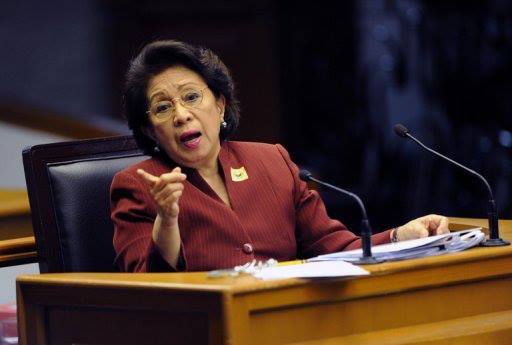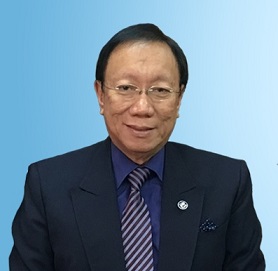
The letter sliced through Calida’s mediocrity while assuring the public that Malacañang has not succeeded in quashing the issue of President Duterte’s undeclared wealth.
The plunder case has not been dismissed. This is important. What Overall Deputy Ombudsman Melchor Arthur Carandang said in his Feb. 12 letter to Calida was “the investigation on the complaint entitled ‘Antonio F. Trillanes IV v Rodrigo Roa Duterte’ and docketed as FF-M-16-0161 was already closed and terminated” upon recommendation by Deputy Ombudsman Cyril E. Ramos on 29 November 2017.”
“By rule, ‘[a] closed and terminated field investigation is without prejudice to the refiling of a complaint with new or additional evidence,’” the Ombudsman said.
The Ombudsman’s confirmation that the fact-finding or field investigation on the case was closed and terminated on 29 November 2017 carried the explanation “after the Anti-Money Laundering Council declined to provide a report or confirmation on the requested vital data. “

A reliable source said last November, Mel Georgie Racela, the Duterte-appointed executive director of the Anti-Money Laundering Council, informed the Ombudsman that they will not be providing any documents related to the case because the President is immune from suits.
Racela’s letter came more than a month after Carandang confirmed receipt from AMLC of the bank records of Duterte and members of his family.
Carandang said the AMLC documents were “more or less” the same as the documents attached by Duterte to his complaints which showed bank accounts containing millions of pesos.
Racela denied having sent the document to the Ombudsman but the latter stood firm that they have received documents from AMLC pertinent to the case. Maybe it was not Racela who sent the documents but there was an official transmittal from AMLC, sources in the Ombudsman said.
Last month, Malacañang suspended Carandang for allegedly leaking the AMLC documents which put the Office of the President on collision course with the Office of the Ombudsman, an independent body created by the Constitution to investigate and prosecute government officials accused of graft and corruption.
Ombudsman Conchita Carpio-Morales stood her ground and ignored Malacañang’s suspension of Carandang.
Malacañang blinked on this as the Ombudsman noted in yesterday’s statement:
“Finally, the Office observes that the Solicitor General effectively recognized Carandang as the Overall Deputy Ombudsman through his official letter-inquiry dated 8 February 2018 addressed to ODO Carandang who, at such date, had been ‘supposedly’ under preventive suspension. The Office sees this as a recognition of the unconstitutionality of the preventive suspension order.”

“The Solicitor General raised certain questions which may be answered by his own declarations. He asked why the Ombudsman kept quiet about the matter. Oddly, he himself pointed out that the Ombudsman had inhibited herself from the investigation. The Solicitor General might want to consider whether it is proper for an official who inhibited from an investigation to remain involved therein. The Ombudsman posits that it is not. In keeping therewith, the investigation was given free rein and proceeded without her intervention. In fact, the Ombudsman learned about such closure and termination only on 29 January 2018, upon an inquiry on the status thereof after learning that Odo Carandang was formally charged and placed under preventive suspension by the Office of the President.
“The Ombudsman trusts that in the conduct of fact-finding investigations, efforts are exhausted to gather evidence and to comply with pertinent internal rules. Fact-finding investigations, under the rules, are generally confidential in nature. The Office is not obliged to inform the subject of the fact-finding investigation about its outcome. The confidentiality of proceedings was, in fact, recognized by the Solicitor General when he cited the exception that the Ombudsman has the power to publicize certain matters (e.g., whether or not to act upon an inquiry “out of curiosity” or media requests for case status out of journalistic duty). The Ombudsman could not have considered exercising such discretionary power relative to the complaints against the President due to her inhibition.”
Calida’s latest pressure on the Ombudsman betrays Malacañang’s panic over the bank accounts which was first exposed by Trillanes during the 2016 campaign.
VERA Files’ analysis of the bank documents showed that Duterte and his daughter Sara Duterte-Carpio, Davao City mayor, omitted to fully disclose their joint deposits and investments at the Bank of Philippine Islands, which conservatively exceeded P100 million in some years, in their Statement of Assets, Liabilities and Networth when they were mayor and vice mayor of Davao City.
The penalties for violating the SALN provisions in RA 6713 are imprisonment of up to five years, a fine of up to P5,000 or dismissal from the service.
In 2012, the Senate, sitting as an impeachment court, convicted then Supreme Court Chief Justice Renato Corona, ruling that “his deliberate act of excluding substantial assets from his sworn Statement of Assets, Liabilities and Net Worth constitutes a culpable violation of the Constitution.”
Over the years, the Office of the Ombudsman has dismissed other government officials and employees and barred them from holding public office for misdeclaring their net worth. It has also filed criminal cases against them before the Sandiganbayan, charging them with grave misconduct, serious dishonesty or falsification of public documents, among others.
Statement of Senator Trillanes on Ombudsman’s decision in closing the investigation of President Duterte’s bank accounts:
Based on the statement of the Ombudsman, the only reason why the investigation against Duterte was closed, without prejudice to reopening in the future, is the refusal of AMLC to submit vital data, specifically, the detailed bank transactions of Duterte. Let us remember that the Exec. Director of AMLC was appointed by Duterte and has since been proactively protecting his political master. Now, in the interest of transparency and accountability, I am calling on the Senate Committee on Banks to conduct an inquiry so we could summon the AMLC and question the legality of its refusal to comply with the Ombudsman’s request. Ultimately, the truth about this very important issue is stored in the data storage of AMLC and BPI.